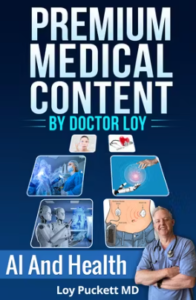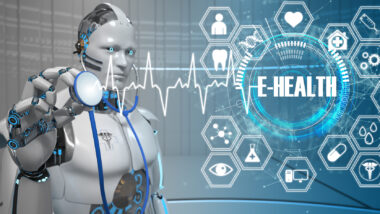
This Offer Will Go LIVE When The Timer Hits Zero!
There are several benefits to using artificial intelligence (AI) in healthcare today, including significantly improving patient outcomes, streamlining processes, and enhancing overall healthcare services. These benefits are derived from the following 10 areas:
- Diagnosis and Treatment Assistance: AI excels at analyzing vast amounts of medical data, such as patient records, imaging scans and lab results, to assist doctors in making accurate and timely diagnoses. Based on the compilation of the data, it can recommend treatment options, predict disease progression, and recommend personalized therapies to attending healthcare professionals based on actual derived patient data.
- Medical Imaging and Radiology: AI enhances the interpretation of medical images, such as X-rays, MRIs, and CT scans. It can help detect subtle anomalies that may have been overlooked by human interpretation of the images, which can improve early detection, and reduce false negatives/positives, leading to more precise and efficient diagnoses.
- Drug Discovery and Development: With its simulative and predictive capabilities, AI can accelerate the drug discovery process by running molecular interactions, predicting potential drug candidates, and optimizing drug formulations. This can lead to faster and more cost-effective development of new therapy treatments and pharmaceuticals.
- Personalized Medicine: By analyzing a patient’s genetic, clinical, and lifestyle data, AI can suggest tailored treatment plans and medications to a patient’s individual needs, thereby maximizing efficacy and minimizing adverse effects.
- Patient Management and Monitoring: Through the continuous monitoring of patient data in real time, such as vital signs and disease progression, early detection of complications and timely interventions can be suggested with the outcome of reducing hospital readmissions and improving patient treatment.
- Predictive Analytics: Through patient data analysis, AI can predict disease outbreaks, patient admissions, and resource needs. This helps healthcare organizations allocate resources effectively and improve overall operational efficiency of their healthcare business.
- Virtual Health Assistants: Using information about a patient’s reported symptoms, chatbots and virtual assistants driven by AI, provide healthcare professionals with information about possible treatments, medications, and self-care instructions for their patients, thus leading to a more personalized patient experience.
- Remote Monitoring and Telemedicine: Through the use of wearable monitors, such as ones used in diabetes and heart maintenance, AI-driven devices remotely monitor patients’ health, track vital signs, and alert healthcare providers to potential issues by sending this data remotely to a health center staffed by healthcare professionals. Then through telemedicine platforms, a healthcare professional can facilitate remote consultations and thereby making healthcare more accessible, especially in underserved and remote rural areas.
- Research and Data Analysis: AI excels at processing and analyzing large datasets from medical research, clinical trials, and electronic health records to identify patterns, correlations, and insights that might be challenging for human researchers to discover. Because diagnostic and treatment options are based on information, the lack of this additional information can greatly impact the patient’s outcome.
- Reducing Medical Errors: AI helps minimize human errors by providing decision support systems that offer evidence-based recommendations, reducing the risk of incorrect diagnoses or less effective treatment plans.
While AI does great things in healthcare, it is important to note that AI is still just a tool to help healthcare providers make better decisions. In the end, it is still a healthcare provider that makes the final determination as far as the best treatment program for a particular diagnosis. It is also important to note that AI systems are validated and regulated appropriately to ensure patient safety, quality of care and restricted control of who has access to patient data.
If you would like more information on how AI is used in the medical field, be sure to get my upcoming launch .
Premium Medical Content By Doctor Loy: AI And Health

Doctor Loy
Loy Puckett MD
Emergency Medicine – 28 Years Experience



